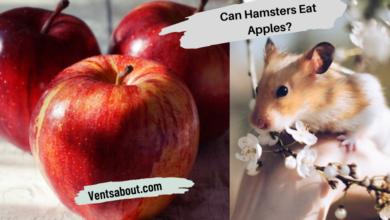How to Deal with Squirrel Nuisances in Your Home or Yard

Sharing our spaces with nature’s varied fauna is both fascinating and enriching. However, our shared coexistence can sometimes turn sour when creatures like squirrels invade our homes and gardens. Though adorable in the wild, squirrels pose a significant nuisance when they start affecting our daily life, damaging property, or munching on our prized plants.
This article by pest control providers is a comprehensive guide to understanding, managing, and resolving squirrel nuisances, making it an invaluable resource for homeowners grappling with these energetic rodents.
What attracts squirrels
Squirrels, like most wildlife, are attracted to environments that provide ample food, water, and shelter. They are particularly drawn to yards brimming with bird feeders, fruits, vegetables, and nuts. Loose or uncapped bins are a significant attraction, with leftover food scraps being an irresistible treat. Squirrels also appreciate ready-made homes, and thus, unkempt gardens or attics with easy access points, provide inviting nesting spots. Understanding these attractants is the first step to effective squirrel management.
Signs of a squirrel infestation
Before we delve into how to get rid of squirrels, it’s essential to identify the signs of an infestation. According to pest exterminators, these include:
- Unusual noises – You may hear scurrying or gnawing sounds, especially in the attic or within the walls, indicative of their active periods – dawn and dusk.
- Property Damage – This can range from chewed wires, damaged insulation, gnawed bird feeders, to ruined plants.
- Droppings – Squirrel droppings are a clear sign of an infestation. They resemble oblong pellets, usually scattered in clusters.
- Nesting Sites – Squirrels build nests known as ‘dreys’ using leaves, twigs, and other debris. These may be spotted in trees, attics, or crevices.
How to get rid of squirrels
Managing a squirrel infestation can indeed be a daunting task, evoking a sense of being overwhelmed. These agile creatures are known for their tenacity, but let’s not lose heart. With a combination of the right strategies, patience, and consistency, achieving a squirrel-free space is certainly attainable. Let’s explore several effective techniques used by pest control experts.
Remove any possible food sources
Reducing food sources is a key tactic in squirrel deterrence. This involves routine clearing of fallen fruits and nuts, meticulous sealing of compost bins to prevent easy access, and feeding pets indoors to eliminate the allure of leftover pet food. In short, a squirrel-proof yard is one that doesn’t provide an easy buffet. By implementing these steps, you’re less likely to attract these determined foragers.
Secure trash cans with lids and cords
To keep squirrels at bay, securing your garbage bins is a must. Use robust lids that fit tightly, preventing these crafty creatures from prying them open. For an extra level of security, consider using bungee cords, which create a more challenging barrier for squirrels to overcome. By making it difficult for squirrels to access potential food sources in your bins, you will discourage their foraging behaviour. This effectively nudges them to seek food elsewhere, away from your property.
Protect the bird feeders
Squirrel-proofing your bird feeders is an essential step towards deterring these agile creatures. Opt for feeders designed to be squirrel-resistant or install baffles, which confuse and prevent squirrels from accessing the seeds. Interestingly, changing your birdseed mix can also make a difference. Squirrels typically find safflower seeds less appetising, while many bird species continue to enjoy them. Thus, using these seeds can maintain your bird visitors while discouraging squirrels.
Use a wire mesh cage in the garden
Guarding your garden against squirrels can be effectively achieved by employing wire mesh cages. They can be used to protect individual vulnerable plants or encase the entire garden area. To enhance their effectiveness, choose mesh with small gaps. It’s worth noting that squirrels are capable of squeezing through spaces as small as an inch, so selecting mesh with smaller apertures can significantly deter these flexible critters.
Use squirrels deterrents
A wide range of deterrents exist to repel squirrels, both commercially available and homemade. Commercial products typically incorporate non-toxic substances that squirrels find unpleasant, while DIY solutions often involve spicy ingredients like capsaicin, found in hot peppers, which squirrels dislike. Regular application of these deterrents in squirrel-prone areas can prove quite effective in discouraging their frequent visits.
Scare them away
Motion-activated devices like sprinklers, lights, or ultrasonic repellents can be formidable allies in your quest to deter squirrels. These devices create a dynamic, unpredictable environment that squirrels find discomforting. For instance, sudden sprays of water, abrupt changes in light, or unexpected bursts of ultrasonic waves (sounds beyond human hearing range) can make your property less attractive to these creatures, discouraging them from loitering or settling.
Use mulch
Mulch can be used as another powerful deterrent in the battle against squirrels, both in its organic and inorganic forms. Squirrels are known to have an aversion to certain types of organic mulch, such as cypress or cedar bark, likely due to their distinctive texture and scent. Alongside synthetic mulches like pebbles, gravel, or chicken wire, incorporating these organic materials into your garden can create a variety of textures that are off-putting to squirrels, helping to keep your garden squirrel-free.
Keep your attic clean
Preventing squirrel access to your attic is essential, not just to deter an infestation, but also to avoid extensive damage. Squirrels, like other rodents, are known to gnaw on wood, wiring, and insulation, potentially causing significant structural damage, electrical issues, and even fire hazards. Regular attic cleanup, combined with blocking potential entrances and trimming nearby tree branches, can greatly help protect your home from such occurrences.
Call the pest control experts
When the squirrel infestation persists unabated or even intensifies beyond one’s ability to manage, reaching out to a professional pest control services company becomes a reasonable and effective solution. Pest exterminators are akin to a specialised task force for animal control, equipped with a broad array of tools and grounded in a solid foundation of knowledge.
Their understanding extends beyond mere problem-solving, delving into the intricacies of squirrel behaviour and environmental interactions. This expertise is pivotal in resolving the issue while ensuring the safety and well-being of both the inhabitants of the household and the squirrels.
Considering pest control services should be viewed less as an expense and more as a strategic investment, particularly when the squirrels inflict considerable damage or present health risks via potential disease transmission such as leptospirosis or tularemia.
Lastly, it’s essential to remember that effective pest control isn’t merely about eradicating the issue. It also necessitates adopting the correct methodology. Always choose services that uphold ethical, humane practices, ensuring that the squirrels are managed without harm, employing eco-friendly strategies. In this way, we strike a balance between maintaining our homes and respecting the natural world that these squirrels inhabit.
Conclusion
Dealing with squirrel nuisances can be frustrating. But with a mix of prevention, deterrence, and professional intervention, you can reclaim your peace. Keeping our homes and gardens free of squirrels is not about evicting these cute furry creatures from our shared space but establishing boundaries that protect both our interests. Should the task become unmanageable, do not hesitate to call in pest control services.





